For our season's finale we visited The Cliffe an area of heathland overlooking the neighbourhood of Nesscliffe and westwards towards and into Wales. Unfortunately the weather did not enhance the experience by being rather hazy and overcast. Never mind, a good day was had by all with fungi being the stars of the show.
There is no convenient parking spot near The Cliffe so we met in the car park of Hopton Wood. My intention was to ferry the group to the site as I knew that the distractions of Hopton Wood would seriously delay our arrival at and limit our time on the Cliffe.
However, as always the group had other ideas and insisted on walking to the site.
"Alright, but no stopping." was my grudging response.
We set off.
To be fair we only stopped once and that was to look at several fungi that adorned the pathside vegetation including a blue one of which I have no photograph nor can I remember its name.
So we reached The Cliffe in record time. Our fist point of interest was the pool. When we visited last year we had our lunch here and were serenaded by frogs. Here is a reminder:
Imagine our surprise when we found no pool.
We did have a look around the area and the lack of water meant we could search where the pool had been. A find that excited our fungi hunters was Dog's stinkhorn, a small version of the Stinkhorn. (Sorry, no photograph - I'm not doing very well.)
A little way from the "pool" is an old quarry and this was our next calling point.
The walls were inspected closely for spiders
 |
| Photograph: Stephen Mitchell |
 |
| Sminthurinus aureus - Photograph: Ed Phillips |
Springtails are very small and "spring" at the slightest threat which makes photographing them more an art than a science. Here is a master springtail photographer in action.
Unfortunately that one got away.
Our next fungi find was a pink one. I have done better this time; I have remembered the name it was given Mycena rosae and have a photograph:
 |
| Photograph: David Williams |
One of the group picked up some wet debris and found a "thing" attached to it.
 |
| Photograph: David Williams |
What is it? Any offers?
We moved on to the top of the hill and the view of Wales. One of the group is pointing to Wales just in case you cannot see it.
A picnic table and benches had been placed at this vantage point so we took full advantage of its presence and had lunch.
Every now and then, to keep us entertained as we ate, a sweeper was sent out to check the heather and other vegetation around the picnic spot. On return the contents of the net were placed in a tray for inspection and identification. Two moth larvae were included in the catch.
A Beautiful yellow underwing
 |
| Photograph: David Williams |
And an Oak eggar
 |
| Photograph: David Williams |
After being photographed these were returned to the habitat from which they were brought.
Lunch over we moved on to the next viewpoint where, helpfully, there was a toposcope which pointed out all the features in the distant and not too distant landscape that we could not see, including, very optimistically, the "Source of the Severn" 40 miles away. (In case you cannot see it - it is just uder and to the right of the large SW.)
And here is a photograph of the Source of the Severn taken in the direction indicated.
More fungi were found in this area including a blackish one which has been identified, rather tentatively, as Mycena vitilis, possibly.
 |
| Photograph: Ed Phillips |
A hairy beast was discovered in the vegetation - the larva of a White ermine.
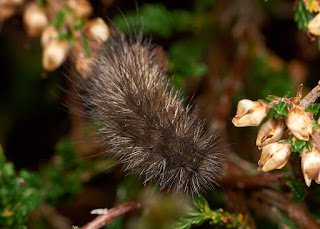 |
| Photograph: David Williams |
We moved on through some woodland. Here again there was lots of fungi including a clump of Shaggy scalycap
 |
| Photograph: Ed Phillips |
The quest for fungi continued as we wandered on. Eventually we came out of the woods and onto a large area of heathland. Unfortunately the misty conditions had not relented and the view was still very restricted.
Time was marching on so we started to make our way back. On the way we made a small detour to another clearing where we found several Fly agaric
 |
| Photograph: David Williams |
 |
| Photograph: Ed Phillips |
These were providing a feast for one hungry slug.
 |
| Photograph: Stephen Mitchell |
Just as we were about to leave a nymphal Bronze shieldbug was found - well there had to be at least one shieldbug picture in this report!
 |
| Photograph: David Williams |
It started raining. We returned, pretty promptly, to the cars and made our way home.
My thanks to Shropshire County Council for giving us permission to enjoy ourselves and to the photographers - Stephen Mitchell, David Williams and Ed Phillips for their wonderful photographs.
This is the last report I will be writing for a while as our programme of weekly walks has come to an end. My thanks to everyone who has attended the events and ensured that the "Joy" in the title of the programme is not just part of a catchy name.
Thank you also to all of you who have read these offerings I hope they have been informative and entertaining.
As for the future, there will be monthly walks over the next six months and then, all being well, it will all start again next April.













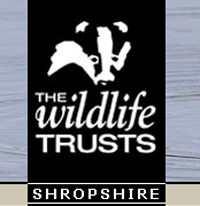

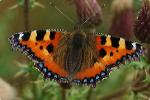




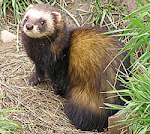

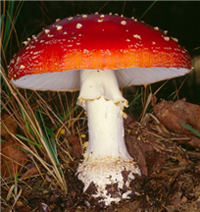





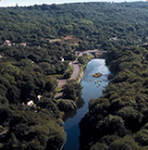






No comments:
Post a Comment
Please feel free to comment on this post...